Campuswide Honors offers specially designed seminars on a variety of topics each quarter taught by top UCI faculty. These courses are open to all rising sophomores, juniors, seniors, and Honors to Honors transfer students in Campuswide Honors on a first come, first served basis. The seminars are worth 4 units each. Campuswide Honors students may take as many of these seminars as they wish, and can even use one of them to substitute for one quarter of an honors core course as designated by Campuswide Honors.
– Only one substitution total permitted per student.
More course information:
Fall 2021 Seminars
|
- Race Sport Media
Instructor: Professor Victoria Johnson
Enroll in: Film & Media Studies H80
Honors seminar examining the intersection of race, sports, and media in everyday U.S. popular culture (film, TV, advertising, gaming, social media) and political culture. Materials fee.
Credit: GE Category IV and VII, may substitute for one quarter of Social Science Core.
|
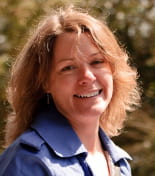 |
- Ethics, Technology and Design
Instructor: Professor Katie Salen Tekinbas
Enroll in: Informatics H81
Provides a critical framework for how and why biases of many kinds are built into everyday digital tools. Reflections on ethics, technology, and design through case studies drawn from machine learning, CS education, engineering, social media, and criminal justice.
Credit: GE Category III, may substitute for one quarter of Social Science Core.
|
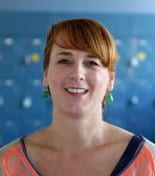 |
- What is Space
Instructor: Professor JB Manchak
Enroll in: Logic & Philosophy of Science H81
Historical, philosophical, scientific exploration of the concept of “space.” Questions of interest include: What kind of a thing is space? How can we know what space is like? How is space different from time?
Credit: GE Category II, may substitute for one quarter of Science Core
|
 |
- CANCELLED:
Neurodivergent
Instructor: Professor Robin Steinberg-Epstein
Enroll in: University Studies H80
Examines the evolution of the diagnosis of autism through history. Deep inquiry of the neuroscience, etiology, and genetics of neurodivergent individuals as well as a review of the validity of the varied treatments will inform critical thinking.
Credit: GE Category III credit, may substitute for one quarter of Science Core or Social Science Core
|
 |
Winter 2022 Seminars
|
- Drugs and Society
Instructor: Professor Sam Schriner
Enroll in: Pharmaceutical Sciences H80
Where drugs come from, how drugs work, how and why people abuse drugs, the costs of drug abuse on society, which drugs are commonly abused, and how drug abuse can be prevented and treated. Course intended for non-science majors. Prerequisite: Recommended: High school chemistry and biology.
Credit: GE Category II, may substitute for one quarter of Science Core
|
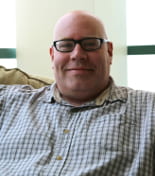 |
- Exploring Memory
Instructor: Professor Sarah Farmer
Enroll in: Humanities H80
Questions about human memory are central to a wide range of disciplines. Students will explore how historians, sociologists, social psychologists, legal experts, and neuroscientists understand human memory and apply their findings to understand and shape their own societies.
Credit: GE Category IV, may substitute for one quarter of Social Science Core
|
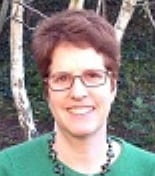 |
- Experiments in Music
Instructor: Professor Christopher Dobrian
Enroll in: Music H80
Scientists explain the cognition of music using experimental methodology; artists expand the domain of music by trying previously unknown ways of making it. These two types of experiment deepen our understanding of music, from both scientific and artistic vantage points.
Credit: GE Category IV, may substitute for one quarter of Social Science Core
|
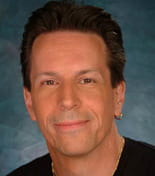 |
- Improvisation and Modes of Research and Creative Expression
Instructor: Professor Alan Terricciano
Enroll in: Arts H81
Through immersion, readings, analysis, and observation, students are trained to recognize, build, and engage a set of “improvisatory” cognitive skills in order to enhance artistic creation, the generation of language, data analysis, and the application of the scientific method.
Credit: GE Category IV credit, may substitute for one quarter of Social Science Core
|
 |
Spring 2022 Seminars
|
- What is Disease?
Instructor: Professor Lauren Ross
Enroll in: LPS H123
This course explores philosophical issues regarding human health and disease. It examines theories of how to identify, classify, and explain disease, with a focus on examples from physical medicine and psychiatry. A brief examination of different theories of disease is provided, from the Hippocratic corpus, to 18th and 19th century medicine, and modern times. After this review, the course focuses on various questions related to modern medicine. These include: What is disease and how is it understood and explained in modern medicine? How should we understand appeals to causal concepts such as “mechanism” and “pathway” in contemporary disease explanations? How should disease diagnosis, classification, explanation, and discovery be understood? What challenges face these practices in modern medicine? Are diseases socially constructed concepts or objective things in the world?The goal of this class is to provide students with a critical understanding of these theoretical issues. Previous knowledge of biology, neuroscience, and/or medicine is not needed. Key notions and concepts in these fields will be introduced and explored throughout the course.
Credit: GE Category II, may substitute for one quarter of Science Core
|
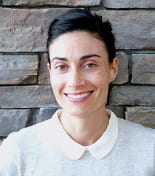 |
- The Properties of Property
Instructor: Professor Lee Cabatingan
Enroll in: CRM/LAW H80
This course takes a deep dive into the concept of property with a goal to denaturalize and critique the private property regime that structures much of the world in which we live. It asks: how have we come to own what we think we own? What ideas undergird the legitimacy of this ownership? Whose ideas are these? In which institutions are these ideas supported? And are there alternatives to private property? To address these questions and more, the course draws from historical, legal, and anthropological sources, amongst others, and features several guest speakers to establish a sociohistorical understanding of how private property came to be, a legal understanding of the cases and laws that have helped to regiment these ideas of ownership, and a cultural understanding of different forms of ownership and alternative ways of relating to objects and land. Through these readings, as well as discussions and guest lectures, the class formulates arguments for and against private property and entertains the possibility that the world could be organized differently. As a case study, the course covers the ongoing, but beleaguered, presence of communally owned land in the Caribbean and elsewhere. As a class, we consider whether this is a viable, desirable, or advisable model within the hegemonic reign of private property.
Credit: GE Category III, may substitute for one quarter of Social Science Core
|
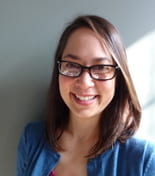 |
- Jurisprudence and Constitutional Law
Instructor: Professor Kyle Stanford
Enroll in: LPS H95
In this course we will investigate and evaluate both philosophical theories of jurisprudence and the U.S. Supreme Court’s actual record of important decisions on a range of controversial constitutional questions. We will first look at a number of influential accounts of what law is and how it differs from other social institutions, paying particular attention to the implications of such accounts for the question of how courts should actually apply laws in deciding controversial cases. We will then go on to look at some of the U. S. Supreme Court’s most influential recent decisions in a variety of contested areas of constitutional law, such as privacy, abortion, and the regulation of sexual conduct by the state, segregation, racist hate speech, and affirmative action. Throughout the course we will be asking whether our philosophical theories offer a convincing picture of actual law and legal decisionmaking and whether particular decisions by the Court can be defended in light of what we ultimately take the best available conception of law and legal decisionmaking to be.
Credit: GE Category III, may substitute for one quarter of Social Science Core
|
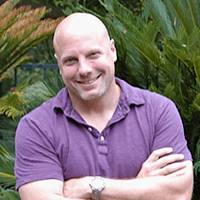 |
- It Wasn’t Just Bombs: Science and Technology of World War II
Instructor: Professor Virginia Trimble
Enroll in: Physics H80
Some professional historians have suggested that essentially all advances in technology, engineering, and science came more or less directly out of warfare, from better spears then used for hunting dinner, through better compounds for explosives that morphed into fertilizers and pesticides, to better rockets re-aimed from dropping bombs to enable trips to the Moon and beyond. The Second World War certainly yielded its share in medicine (bulk use of penicillin), astronomy (seeing the universe at wavelengths to which our eyes are blind), nuclear energy sources (from bombs to reactors), meteorology (from “will it rain on D-Day?” to “will it rain on my birthday?”), computational technologies (from ENIAC to your pocket gizmos and laptops), radar (from “is that a small submarine or a large whale we just fired at?” to mapping of earthquake faults), and many other examples. The intention is that participants in the seminar will get quick looks at many of these things (some from books; some from the professor) and then, individually or in small groups, learn more about one or two, write up their findings, and present them to the whole seminar, with a final write-up due at the time of the scheduled final exam. But there will be no such final, or mid-term.
Credit: GE Category II credit, may substitute for one quarter of Science Core
|
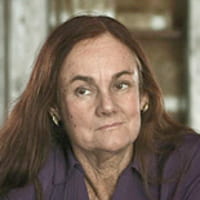 |
2020-2021 Honors Seminar Archive
2019-2020 Honors Seminar Archive
2018-2019 Honors Seminar Archive
2017-2018 Honors Seminar Archive
2016-2017 Honors Seminar Archive
2015-2016 Honors Seminar Archive












